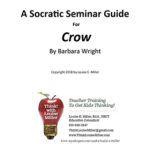Putting the Spoons Back in the Drawer…
A while back, there was a Facebook post stating that “Rigor” was the one word educators were most tired of hearing about. Admittedly, FB is not exactly an academic journal, but there’s probably some truth in there. Rigor can conjure up images of cranking out long worksheets with calloused fingers by candlelight.
In essence, however, rigor is really the level of thinking our kids are doing, rather than us. Our really tough work lies in the development of learning experiences designed to elevate student thinking. Rigor lies in questioning, conversations, and in student products. It’s not more, it’s higher. Perhaps ironically, some of our students who “do school” the best may find rigor frustrating, even irritating. The spoon-feeding approach is comfortable…and feeds the grading machine. But putting the spoons away is critical to developing innovative thinkers.
Some help:
An expert in inquiry–based learning, Laurel Schmidt’s perspectives and guidance in this area are simply tops…and she’s graciously made all of her downloads free to educators. Great starting place is “Don’t take No (Or Yes!) for an Answer: The Art of Inquiry.” Her 30- minute podcast is one for multiple listens – truly a game-changer.
Link to her downloads: https://myedexpert.com/vendor/thanelaurel/
Link to fabulous podcast with Laurel: https://myedexpert.com/ep-09-our-students-brains-google-between-their-ears/
ELA & reading teachers have discovered Louis Miller’s work in inquiry-based instruction, particularly her “Socratic Seminar Guides.” From To Kill a Mockingbird to Animal Farm, she’s developed questioning guides for educators. Here’s the link to her resources: https://myedexpert.com/vendor/louise-e-miller/
World history educators: Do not miss the work of Sheila White! Designed for grades 7 up, she’s created thought-provoking historiograpies that are open downloads. From critical reading to creating historical opinions…her work is designed to elevate student thinking.
https://myedexpert.com/vendor/SheilaWhite/
Suzy Pepper Rollins has her cross-curricular literacy lesson posted that she uses to model student-centered learning. Students chose a job: mechanical engineer, mathematician, biographer, or economist. By the end of the lesson, students have to determine: “Which invention had the greater impact, the cell phone or the cotton gin?”
https://myedexpert.com/vendor/suzypepp/
Not to be redundant not to be redundant: If you’re seeking math experiences that challenge kids, you need to know about Jerry Burkhart‘s work: If there’s an antonym for “worksheet” it’s Jerry. These are called “Intrepid” math and “Deep Algebra Projects.”
https://myedexpert.com/vendor/jburkhart/
Podcast this week is the wonderfully charismatic Rick Jetter. A great reminder of the power of asking our students on a daily basis what aspects of school are working for them? What can WE do better to support you? After all, it’s their learning. Student Voice and Leadership
https://myedexpert.com/category/podcasts/
Rick’s space with free downloads: https://myedexpert.com/vendor/rjetter/
Thanks for supporting best practices in teaching and leading!
We update just about every day on Twitter @myedexpert











